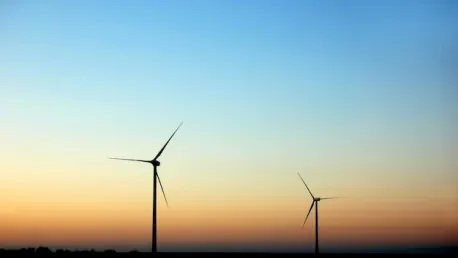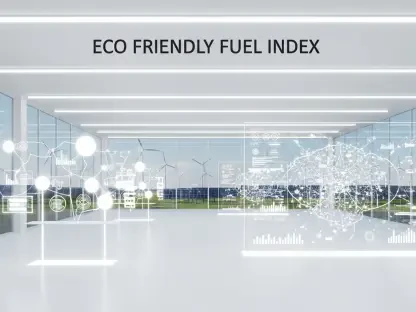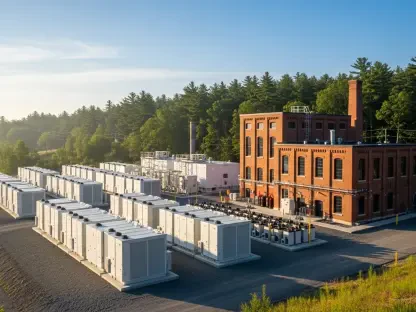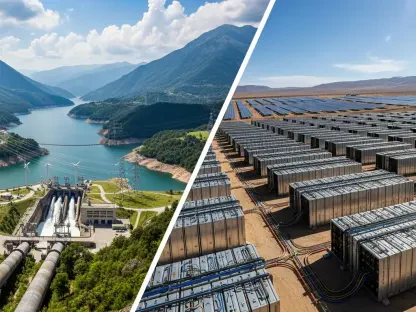Norway is making significant strides in the renewable energy sector, with its sovereign wealth fund, the largest in the world at $1.8 trillion, stepping up its investment in green technologies. The fund is set to acquire a 49% stake in two major offshore wind farms developed by Germany’s RWE for $1.5 billion. These projects, named Nordseecluster and Thor, are situated in the North Seas off Germany and Denmark. The combined value of these wind farms is approximately $3.1 billion, and they are anticipated to be fully operational between 2027 and 2029. Once completed, they will provide electricity to more than 2.6 million households across Germany and Denmark.
Diversification of Norway’s Sovereign Wealth Fund
This strategic investment aligns with the broader objective of Norway’s sovereign wealth fund to diversify its portfolio by investing in renewable energy assets. Historically, the fund’s portfolio was heavily focused on revenues generated from oil and gas. However, in recent years, the fund has expanded by acquiring stakes in various global companies and sustainable projects. On average, the fund holds stakes in about 1.5% of all publicly listed companies worldwide. This pivot towards renewable energy investments demonstrates the fund’s commitment to integrating sustainability into its investment strategies while actively seeking steady financial returns from environmentally friendly sources.
Norway’s investment in offshore wind farms highlights its proactive approach towards contributing to the global transition to green energy. These investments not only promise substantial energy outputs but also strengthen Norway’s economic position by reducing reliance on fossil fuels. This strategic shift indicates a broader global trend, where countries with substantial oil revenues are channeling their resources into renewable energies to ensure long-term economic and environmental sustainability.
RWE’s Strategic Adjustments
On the other hand, RWE, the German energy giant, has announced a reduction in capital expenditure for low-carbon energy initiatives by $10.8 billion. This decision is primarily in response to ongoing uncertainties in renewable energy policies, supply chain constraints, geopolitical risks, and rising interest rates. As a result, RWE has adopted stricter risk management protocols and elevated expectations for returns on investment, leading to a recalibration of its planned expenditures through the end of the decade.
Despite these financial and geopolitical challenges, the collaboration between Norway’s oil fund and RWE represents a calculated move towards anchoring renewable energy investments as a cornerstone of future energy strategies. The transaction, currently pending the usual approvals, is expected to be finalized by the third quarter of this year. This collaboration signifies a profound shift in global investment strategies, with a clear emphasis on cautious yet substantial investments in clean energy amid an unpredictable economic landscape.
The Nordseecluster and Thor projects are especially significant in the context of this investment. With a combined capacity of 2.7 GW, these wind farms will play a crucial role in bolstering Europe’s renewable energy supply. RWE’s role in overseeing their construction and operation ensures that these projects will benefit from the company’s extensive experience in the renewable energy sector, raising hopes for their successful implementation and long-term contribution to energy sustainability.
Implications for the Future
Norway is making remarkable progress in the renewable energy sector, largely backed by its $1.8 trillion sovereign wealth fund, the largest globally. This powerful fund is increasing its investments in green technology and is poised to acquire a 49% stake in two significant offshore wind farms being developed by Germany’s RWE for $1.5 billion. Named Nordseecluster and Thor, these projects are located in the North Sea near Germany and Denmark. Together, these wind farms are valued at about $3.1 billion and are expected to be fully operational between 2027 and 2029. Upon completion, they will supply electricity to over 2.6 million households in Germany and Denmark. This investment highlights Norway’s commitment to sustainable energy and its leadership role in combating climate change. The move is seen as a vital step towards a greener future, benefiting the environment and providing clean energy to a significant number of homes across the region.









